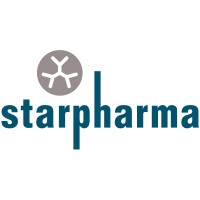Metabolic Therapy and How the Industry is Mobilizing
Almost every month, leading institutions and biotech startups announce Phase I and II trials targeting cellular energetics. Former immuno-oncology pipelines are now being reshaped around metabolism-aware combinations. At the Metabolic Medicine Summit 2026, clinical and pharmaceutical innovators will present case studies from metabolic therapy trials involving ACC-2 inhibition, mitochondrial reprogramming, and Warburg-cycle modulation. These companies are translating foundational metabolic insights into scalable interventions, including targeted drugs and dietary formulations addressing metabolic inflexibility in insulin-resistant states, fatty liver disease, and oncology supportive care. Major pharmaceutical and nutraceutical players are moving in this direction, while clinical researchers and formulation teams are testing how ketogenic protocols and metabolic cofactors can enhance therapeutic efficacy and minimize toxicity.
Industry leaders are identifying the most promising use cases of metabolic medicine for drug developers: co-targeting metabolism in cancer to complement immune checkpoint inhibitors, optimizing energy substrates to manage cachexia and inflammatory disease, and improving trial design through biomarkers of metabolic plasticity. If that sounds theoretical, think again. Early results show how modulating cellular fuel choice can significantly improve pharmacodynamic profiles. Companies are piloting combination regimens, engaging regulatory advisors, and collaborating with nutrition science think tanks. These pioneers are not just envisioning synergy between pharmacology and nutrition; they are actively building it.
Metabolic Pathways Reshape Pharmaceutical Development
Metabolic therapy is not just a niche; it is a system-level approach poised to reshape drug development across multiple indications. Metabolism-focused strategies, including allosteric enzyme modulators and nutrient-sensing pathway inhibitors, are redefining how drugs are screened, developed, and positioned. Pharmaceutical companies have long invested in mitochondria-targeted molecules and NAD+ pathway enhancers. The next evolution is precision metabolic profiling, which optimizes treatment according to metabolic subtype. This marks a paradigm shift in how trial endpoints are defined and how efficacy is measured.
But the challenges are real. Formulators and regulatory teams must reconcile traditional endpoints with metabolic outcomes. Products must remain bioavailable across diverse metabolic states. The central question is this: Can drugs and diets co-evolve within a regulatory framework still shaped by siloed thinking? Experts at the Metabolic Medicine Summit 2026 will argue yes, presenting compelling evidence from both the clinic and the lab. Many aspects of disease progression, drug metabolism, and patient adherence can now be supported by a robust metabolic strategy. Yet hurdles remain, including functional diversity in nutrient response, heterogeneity in mitochondrial profiles, and limitations in simulating metabolic adaptation under real-world conditions.
Beyond the Hype: Practical Application in Trials and Practice
As transformative as metabolic drug strategies may be, traditional biochemical assays and outcome-based trial frameworks still dominate the landscape. Many optimization efforts, such as improving therapeutic index or mitigating dose-limiting toxicities, are now being guided by metabolic endpoints. It is no surprise, then, that metabolic flexibility biomarkers and nutritional response diagnostics are among the most requested tools by clinical investigators and CROs.
At the Metabolic Medicine Summit 2026, the pharmaceutical industry will come together to define standards, assess real-world outcomes, and shape a future where metabolic therapy is not a supplement to traditional medicine but a central axis of innovations.













